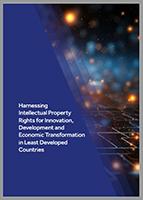
In an era when knowledge and innovation are at the forefront of economic transformation, the role of intellectual property rights (IPRs) in shaping the future of least developed countries (LDCs) cannot be overstated. Harnessing Intellectual Property Rights for Innovation, Development and Economic Transformation in Least
Developed Countries is a collaborative effort between the Commonwealth Secretariat and the United Nations Conference on Trade and Development (UNCTAD), reflecting our shared vision of empowering LDCs through the strategic use of IPRs.
This report is not just a testament to the potential of IPRs in fostering innovation and growth; it is a roadmap for LDCs to navigate the complex terrain of intellectual property (IP) and use it as a tool for sustainable development. In these pages, we delve into how IPRs can be harnessed to stimulate creativity, attract investment and
promote technological advancement in LDCs, thereby contributing to their economic transformation and development.
Time is of the essence. Recent events have shown that each global crisis disproportionally affects LDCs. As the world grapples with cascading and accumulating crises, from climate change to the lingering effects of COVID-19, from war to rising debt burdens, from trade disruption to sidetracked development prospects, the need for innovation has never been greater. This report provides LDCs with insights on how to create an enabling environment for IPRs, ensuring they are not left behind in the global race for innovation and development. It highlights
successful case studies, offers practical recommendations and underscores the need for a balanced approach to IPRs that best adapts to LDCs’ technological absorption, level of productive capacities, competitive strengths and innovation potential.
We believe that this report will serve as a valuable resource for LDCs seeking to leverage IPRs for their economic and social advancement. It is a call to action for all stakeholders to work collaboratively towards a future where IPRs are a catalyst for sustainable development and inclusive growth in LDCs. This report fills an important gap in the policy literature on LDCs, in a context where the processes by which innovation occurs in LDCs, as well as the scope and potential for broadening innovative activities in these settings, have not been well documented.
We trust that this report will contribute valuable insights, policy perspectives and practical recommendations on how LDCs can strategically use IPRs to drive innovation and development. The Commonwealth Secretariat and UNCTAD are
committed to collaborating with and supporting LDCs on this important journey.
The Rt Hon. Patricia Scotland KC
Secretary-General of the Commonwealth
Rebeca Grynspan
Secretary-General of UNCTAD


